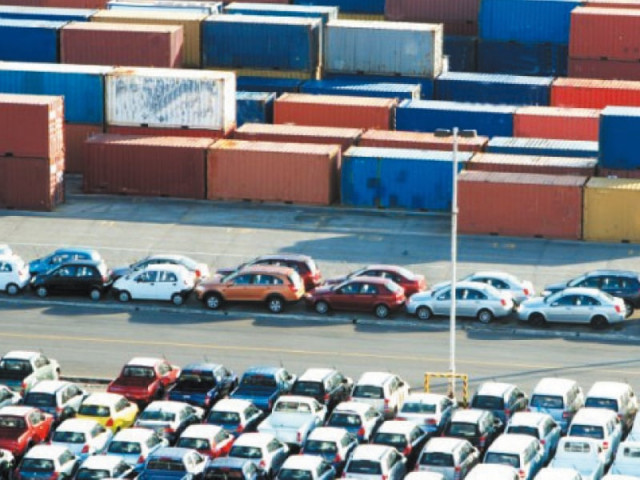Pick up your pace: Imports not the only issue denting local car sales
Local assemblers have other reasons to worry about.

It has become apparent that there exists a problem with the local car industry with their declining sales not just depending on the ‘heavy’ import of used cars. PHOTO: FILE
An argument often put forward for the low volume of car sales on imported ones is proving to be a wrong one.
While car imports have declined significantly in the last 12 months, sale of local ones has not picked up as expected.
By now, it has become apparent that there exists a problem with the local car industry with their declining sales not just depending on the ‘heavy’ import of used cars.
Import restrictions have dented sales of imported cars as they declined by a massive 62% in the last six months (Jul-Dec 2013). However, contrary to expectations, sales of locally-produced cars jumped by a meager 6.5% during the same period.
Sales of locally-produced cars reached 61,252 units in the first six months of fiscal year 2014 (FY14) compared to 57,540 in the same period of last year. On the other hand, car imports declined to 11,263 from 29,576 units in the same period.
Analysts believe the sales of locally-produced cars will increase in the second half of FY14. Car sales usually jump in the first six months of the year, but they estimate that the overall jump in the fiscal would not be more than 8%.

This is not such a bad news for local car producers but it is not as good as one can expect following the government’s restrictions on car imports – the previous government had reduced the age limit of used car imports from five years to three years in December 2012.
“There is more than one reason why sales of local cars have not picked up in the first six months of FY14 despite a huge decline in car imports,” JS Global Capital analyst Atif Zafar said.
The main causes include a backlog of imported used cars, low economic activity in the country, high prices and lack of choices for customers especially in the small cars’ category, Zafar added.
It was FY12 that jolted the local car industry in which car imports jumped by a record 165% to over 55,703 cars, up from just over 21,000 the year before.
However, 2012 was a good year for both as even local car assemblers saw their sales rise by 23% to just over 154,255 vehicles. But then in FY13, sales of both imported and local cars declined sharply by 18.5% and 22% respectively.
Looking at the data of the last two fiscal years, one can safely say that the current one should be a good year for the local industry. Sales of locally produced cars are going to increase at a time when car imports are going to cut by half.
“Low sales of locally produced cars indicate two things: the purchasing power of people is limited and, second, local car producers do not offer enough options to customers,” All Pakistan Motor Dealers Association Chairman H M Shahzad said.
“What the government needs to do is allow imported cars that give more options to the consumers. At the same time, it must also collect taxes from importers to increase its income.”
Fewer choices in small cars’ range
Over the last two years, small imported cars have dented sales of local cars the most. The discontinuation of Suzuki Alto and Daihatsu Cuore (both 1,000cc or below category cars) from June 30, 2012 was another reason that hit local car sales.
Pak Suzuki and Indus Motor ceased to make these models after the government’s deadline to produce all new cars on Euro II emission standards after June 2012.
Out of the five engine categories, the share of small cars (up to 1000cc) in the total imported cars was 45% in FY12. It jumped to 59% in FY13 and it is now touching a massive 72% in the first six months of the current fiscal year. This development will certainly pinch local carmakers who have failed to introduce new models in this category in the last one-and-half years.
“We want to introduce new models in small cars’ category but the minimum price of those cars will be Rs1.1 million. Now tell me who will buy such an expensive one?” an official of a car company told The Express Tribune who chose to remain anonymous.
Analysts say customers’ preference for imported small cars is obvious. They also say that customers’ interest in imported small cars is because of the sharp rise in prices of cars (both local and imported). Moreover, small cars have gained more popularity because of slow economic growth and the rise in the cost of petroleum products in recent years.
Published in The Express Tribune, January 20th, 2014.
Like Business on Facebook, follow @TribuneBiz on Twitter to stay informed and join in the conversation.



















COMMENTS
Comments are moderated and generally will be posted if they are on-topic and not abusive.
For more information, please see our Comments FAQ